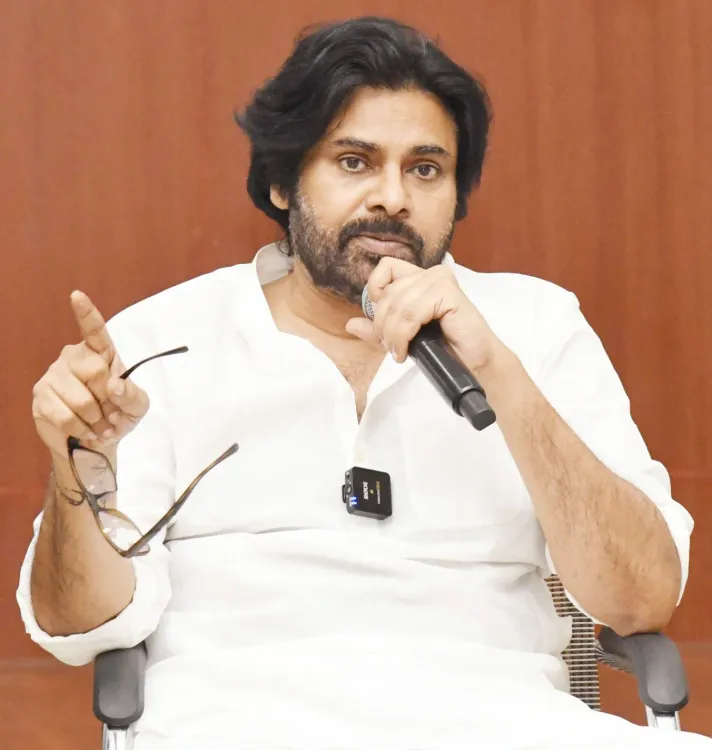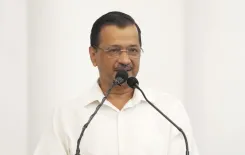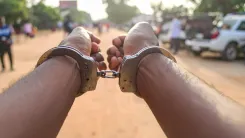Is the Emergency One of the Darkest Chapters in India's History? Pawan Kalyan Speaks Out

Synopsis
Key Takeaways
- The Emergency was a significant breach of democratic rights.
- Many leaders faced imprisonment for opposing the regime.
- It is essential to remember the sacrifices made for democracy.
- Public awareness is crucial to prevent future tyranny.
- Constitutional values must be defended at all costs.
Amaravati, June 25 (NationPress) Andhra Pradesh Deputy Chief Minister Pawan Kalyan remarked on Wednesday that the Emergency stands as one of the most gloomy episodes in the journey of independent India.
The leader of the Jana Sena party emphasized that this was not merely a political incident but a blatant betrayal of the Constitution, a farce against democracy, and a representation of the insatiable quest for power by the Congress leadership at the time.
"The media was stifled. The voices of the Opposition were suppressed. Basic rights were revoked. Esteemed leaders like Loknayak Jayaprakash Narayan, Sri Atal Bihari Vajpayee, Sri L. K. Advani, Sri George Fernandes, and Sri Morarji Desai were jailed for defending democracy," the actor-politician shared on 'X'.
"As we commemorate 50 years of this constitutional treachery, we observe 'Samvidhaan Hatya Diwas' to honor those who bravely stood against tyranny and preserved the integrity of our democracy. Let us remember the sacrifices made by the leaders opposing oppression and the pain of millions whose voices were silenced. We must remain vigilant against any attempts to undermine our Constitution in the name of politics," added Pawan Kalyan.
Union Minister of Coal and Mines G. Kishan Reddy also expressed his views on the micro-blogging platform.
"Today marks half a century since the Emergency was declared by the Congress in 1975, a tragic chapter in India's democracy. The Constitution was trampled, lakhs were imprisoned, the media was silenced, and democracy was extinguished—all to maintain one family's hold on power!" tweeted Union Minister Kishan Reddy.
"We must never forget those who imprisoned the nation to preserve their seats! We cannot forgive those who deemed such tyranny 'necessary.' No one is above our Constitution, and we will NEVER permit such a dictatorship to rise again," the Union Minister added.
Union Minister of State for Home Affairs Bandi Sanjay Kumar stated, "It was the day when democracy was crushed, and dictatorship prevailed. A day filled with the darkness of power hunger. A day when freedom was stomped upon, and tyranny ruled. The day when individual liberty was buried, and the Constitution was ridiculed."
"The Emergency enforced by the Congress Party is a dark chapter engraved in India’s history. This day remains a somber memory. Let us pledge to uphold constitutional values while honoring the sacrifices of countless brave souls who endured imprisonment, fighting to lift the Emergency and protect our Constitution," posted Sanjay Kumar.







